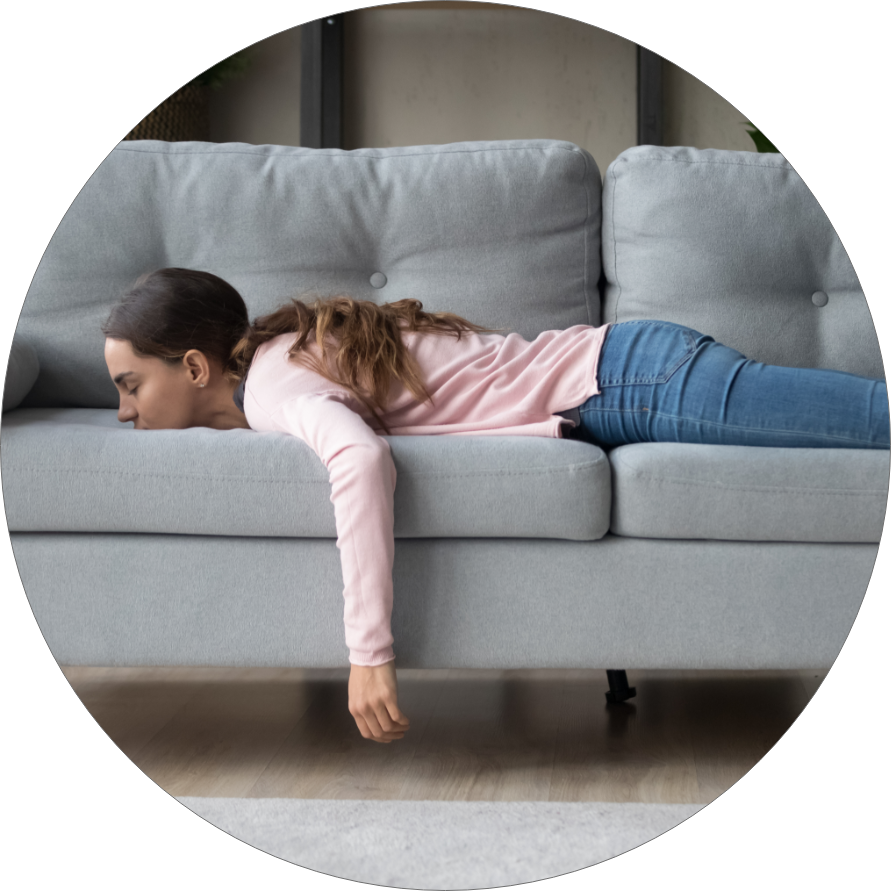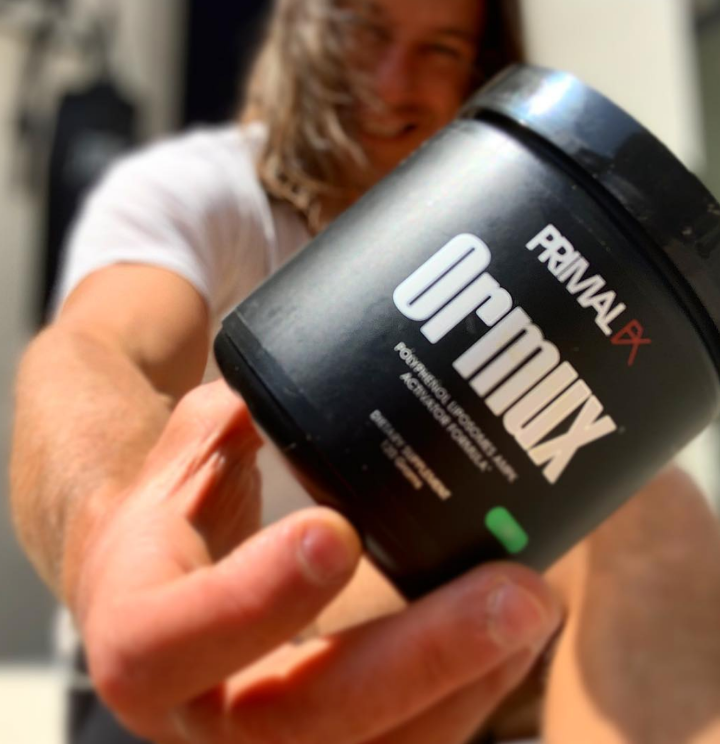
This section is for those who have already eliminated dairy products, wheat, soy, oats, cereals and peanuts, and have corrected magnesium and selenium deficiencies, but who are still suffering from fatigue.
Why is that?
The possibilities are infinite…
But there are three very frequent ones that need to be ruled out.
And these are…?
I’ll tell you in a moment…
But first you must promise me something…
That you will always consult with your doctor first!
Repeat after me…
“OK, Ludwig. I promise, I swear, I give you my word… I will go to my doctor and consult with him about these three possibilities… I will do none of this without his medical supervision.”
Right. So that’s all settled.
Always obtain your doctor’s approval. Otherwise, you could have serious problems.
So let’s go…
The First:
You must rule out low cortisol.
All right. That’s the first one settled.
If your cortisol is low, your doctor will correct it and…Boom!! You’ll find your energy has returned.
The Second:
You must stop being undermedicated (You may be taking levothyroxine though you’re probably taking a lower dosage than you need).
Your doctor will ask you to add 25% more to the dosage in your treatment.
If you weren’t taking enough… Boom!!! You’ll find your energy will return again.
If you were already taking enough, you’d be suffering from insomnia and tachycardia, so he will tell you to go back to your previous dosage.
And the third (and last) cause of your persistent exhaustion that must be ruled out and which is mentioned in the second video about hypothyroidism and chronic fatigue is…
You… who have never had thyroid problems because you’ve already been examined and your tests have always been fine…
Or you are suffering from hypothyroidism even though the results of your thyroid tests are within the normal range. (1)
That’s right.
Just so.
Your thyroid is just pretending to be fine.
“How come?” you may ask.
Read on…
And read all of it…
Until you come to the Therapeutic Test. (Never ever try to take the therapeutic test without medical supervision or without having previously ruled out low cortisol).
Take care of yourself…
See you in the next video!!!
DR. LUDWIG JOHNSON
LIVE PRIMAL
- Eliminate dairy products, wheat, soy, oats, peanuts and cereals in general.
- Regular evacuation/juices/enemas
- MAGNESIUM + LYSINE: take 1 or 2 capsules with your evening meal
- SELENIUM + MAX T3: take 1 or 2 capsules with your mid-day meal (Start 3 days after you start with magnesium)
- Correction of thyroid/cortisol/glucose
- Deworming/zeolite
- ORMUX: take 1 or 2 servings before or after any food from 6pm onwards (Start 6 days after you start with magnesium).
- VITAMIN C +ACTIVE B: take 2 capsules twice per day before 6pm
- Correction of iron/folates
- Autohemotherapy
- Uncaria tomentosa
- Antibiotics?
FREE YOURSELF FROM CHRONIC FATIGUE
On a scale of 1 to 10, how intense is your fatigue?
How did it appear?
Did it start after a viral infection or medical treatment, or did it appear for no apparent reason?
Did it appear after an infection?
Have you had Zika, Dengue or Chihkungunya?
Have you ever been dewormed?
As a child?
As an adult?
Do you suffer from pains in your joints?
Have you ever been diagnosed with hypothyroidism/changed your dosage/been tested with T3/had a therapeutic test?
You may never have had thyroid problems, but what about your sister or your mother?
Have you ever been told that your thyroid was functioning to its maximum limit?
Have you ever had tests related to anti-TPO antibodies and anti-thyroglobulins, cortisol and prolactin?
Have you ever had a miscarriage?
Have you sometimes had slightly raised prolactin levels?
Are you sensitive to cold?
I’ll ask you again: Has your cortisol hormone ever been evaluated?
Has your sugar ever been high?
Do you feel static electricity/pain/a burning sensation (NEUROPATHY), depression and/or loss of memory?
Have you ever been diagnosed with anything; if so, what medication have you been taking?
Do you suffer from constipation?
YOU ARE NOT SHORT ON MEDICINE
“Your chronic fatigue is not a cause.
Your chronic pain has one or several consequences and, in order to find a cure, we need first to discover them.
Otherwise, you will continue to feel tired and your medication will only be treating consequences…
Medicine for Pain, Medicine for Sleeping, Medicine for Depression, Medicine for Tachycardia, Medicine for Allergies. Medicine for Irritable Bowel,
Medicine for Heartburn, Medicine for Panic Attacks… All that these Medicines do is to attack consequences.
By definition, chronic fatigue is a diagnosis made by default for all known conditions that produce fatigue (Anemia is not considered to be chronic fatigue since its cause is known) and is often accompanied by muscular and/or articular pain, sleep disorders, mental lapses and depression.
In the following section, I will explain certain causes which are often ignored in traditional medicine, the result of which is that the patient is over-medicated and left without hope. I will also describe the Medical Protocol that I use in my private practice to help my more rebellious patients get better.”
DR. LUDWIG JOHNSON.
TAKE ORMUX
The cause of your chronic fatigue is not always apparent from your medical examinations.
The results often appear to be normal with regard to the problem that they are supposed to identify.
They are Medical Examinations with a low sensitivity level. (While positive results may confirm the existence of a problem, negative results do not necessarily rule out its existence).
Here are some examples:
1. Inflammation produced by wheat is not exclusively due to celiac disease (gluten allergy). Sensitivity to gluten is another possibility (1)(2), though many only rule out gluten allergy). (1)(2)
2. Magnesium deficiency is intracellular and the examination only measures the extracellular aspect. A blood test may reveal normal Magnesium levels even when there is a deficiency in Magnesium. (1).
3. Borrelia Burgdorferi infection (Lyme disease) rarely shows up in blood tests. (1).
4. Parasites may be present in the organs without being detected in feces tests.(1)(2)
5. The thyroid test is not 100% sensitive. Results may appear to be normal even in cases where the thyroid is altered. (1)(2)

FOR DOCTORS ONLY (THE THREE QUESTIONS)
The doctor carries out three examinations:
1.When the doctor examines the patient.
This is the first type of examination.
Here the doctor suspects the probable cause(s) of chronic fatigue.
2. When the doctor examines the results of the tests he ordered.
This is the second examination.
Here the doctor will confirm his suspicions (or diagnostic impression) when the results turn out to be positive, though he does not necessarily rule anything out if they are negative.
3.When the doctor examines the patient’s body.
This is the third and most important examination.
He proceeds to this third and final examination only if a diagnosis has not emerged after the first two.
In this examination, the doctor prescribes a solution to the problem according to his suspicions and despite evidence to the contrary from the previous tests (Therapeutic test).
When the symptoms disappear, the diagnosis can be confirmed.
THE DIAGNOSTIC IMPRESSION
FOOD
The doctor examines the food in the patient’s diet, irritable bowel history, post-consumption abdominal inflammation (gas/air (SIBO?), personal or family history of autoimmune diseaese (Hashimoto. lupus, rheumatoid arthritis, ankylosing spondylitis, etc.), allergies, acne , articular pain, nasal dischatge, asthma, premature ejaculation, dandruff…
MAGNESIUM AND/OR ASCORBIC ACID DEFICIENCY
The doctor examines for posible magnesium deficiency, insomnia, headaches, tachycardia, high blood pressure, articular pain, osteoporosis, anxiety/restlessness, history of gallstones (renal lithiasis), personal or family history of heart attacks, strokes and/or arterial calcification, thrombophlebitis, metabolic syndrome, type 2 diabetes, varices, coagulopathies, alteration in collagen production, etc.
HORMONAL DYSFUNCTION
The doctor examines fatigue level on a scale from 1 to 10 (with 10 as the most extreme). A score of 7 or above would suggest adrenal fatigue, while 9/10 could be Addison’s disease and in all scenarios there is a likelihood of hypothyroidism/hyperthyroidism (nails, hair, skin, weight, depression, pain, irritability, loss of normal facial features, retention of liquid/dehydration, sexual apathy…) thirst/diabetes insipidus? + loss of weight/muscular mass, diabetes 2?
CHRONIC INFECTIONS
The doctor examines the polyarthritis history, pain/articular inflammation, abdominal distention, diarrhea, ulcers, itching, fasciculations, headaches, neck/back pains, stings, neuropathy, static electricity, constipation, allergis, skin/mucous membrane irritation, buzzing in the ear, dizziness, mental lapses, loss of memory, gait/balance disturbance, depression, panic, restlessness, irritability/extreme insecurity, outbreaks of aggressiveness, feeling of loss of control over life, desperation, neurodegenerative illnesses, dysautonomias, history of tick bites, Zika, immunosuppressive treatments, etc.
INTOXICATION THROUGH HEAVY METALS
The doctor examines work history, cosmetics, chemistry, painting, mining, contaminated environments, parasites, etc.
SPINAL COLUMN INJURIES
The doctor examines injuries, surgical operations, fasciculations, cervical pain, lumbar pain/typical ext. lower/atypical abdominal irradiation, muscular contractions, deviation of the atlas or first vertebra, etc.
EXAMINATIONS
This is the second examination.
Here the doctor may require the following examinations depending on the diagnostic inpression from the initial examination, the patient’s economic/socio-cultural condition and/or lack of response to previous treatments.
Not all of the following medical examinations are mandatory.
The criteria for knowing which ones should be carried out are exclusively medical and will depend on the above-mentioned features.
1. Blood biometry, ESR, C-reactive protein and blood chemistry (formula? renal functionalism? hepatic?)
2. TSH, free T4, free T3, anti-TPO antibodies, anti-thyroglobulin antibodies
3. AM CORTISOL (Low? Cortisol in urine for 24 hours? Proof of ACTH stimulation test?)
4. PROLACTIN, free and total testosterone, estradiol, FSH/LH
5. IRON
6. PTH, fibrinogen, PT and PTT, serum calcium, vitamin D (All of these evaluate probable magnesium deficiency)
7. HbA1c, partial microalbuminuria
8. Random calcium in urine
9. Abdominal/thyroid ultrasound
10. Serology for HIV, hepatitis C, herpes virus, Epstein Bar Virus (reactivation?)
11. Simple urine test
12. Serology for borrelia/bartonella/babesia/ (Very low sensitivity), brucella, PCR mycoplasma/ chlamydia… elispot, CD57 count
13. Coarse drop test
THE THERAPEUTIC TEST
This is the third and last examination.
The doctor will proceed to this stage if a diagnosis has not so far been proposed.
The doctor will evaluate the patient’s response to the respective therapeutic test.
Patients will be exposed to the following protocol, which consists of 6 stages and lasts between 2 and 4 weeks, in order to evaluate their response.
Healing may occur at any stage or appear gradually.
This will determine whether or not the doctor proceeds to the next stage.
The doctor will observe the order in which the stages are to be implemented; otherwise, there may be complications for the patient.
FIX THE 4 LEGS OF THE TABLE
Fix “The 4 Legs of the Table”.
1. Eliminate dairy products, wheat, soy, oats, peanuts, corn and cereals in general.
2. Evaluate and fix probable magnesium deficiency.
3. Evaluate and fix probable selenium deficiency (iodine should not be prescribed).
4. Evaluate and fix probable alterations in the thyroid hormone and cortisol.
LIVE PRIMAL
YOUR THYROID SPEAKS
The therapeutic test for thyroids is the second stage.
We move on to this second stage if, despite having fixed all 4 table legs, fatigue persists.
Even though the patient is taking magnesium/selenium and is sleeping better, fatigue continues.
Antinutrients have been eliminated from the diet and the patient gets back to normal weight, but continues to feel tired.
In this scenario, the doctor will suspect or rule out posible hypothyroidism, even when the thyroid test is withing the normal range.
In this case, the next step will be the therapeutic test for thyroids.
Hypothyroidism may be present even when the results of the thyroid test are within the normal range. (This test is not very sensitive)
If after the first step, fatigue, depression and/or articular pain persist, the doctor will suspect hypothyroidism, despite having obtained normal results in the blood tests.
In this scenario, the doctor will prescribe the therapeutic test (see Protocol below).
This will involve examining the patient with a pediatric dose of thyroid hormone to evaluate the response.
If the patient’s depression, pain and/or fatigue is alleviated, and there are no signs of tachycardia, insomnia or a sensation of irritability after the test, it will probably be a case of hypothyroidism.
If the patient doesn’t tolerate the therapeutic test (tachycardia and/or insomnia, and/ or cramps and/or a sensation of irritability appear), it should be suspended and a diagnosis of hypothyroidism ruled out. (The doctor would then continue with the third step to discover the cause of chronic fatigue).
The therapeutic test is used to evaluate the probability of hypothyroidism when test results are normal.
Before carrying out the therapeutic test, the doctor will ensure that the cortisol level is not too low.
If cortisol is too low (adrenal fatigue/Addison’s), the doctor will have to fix it before suspecting hypothyroidism and/or proceeding with the therapeutic test.
The therapeutic test should never be taken without medical supervision or prescription.
In addition to the above comments, there are further considerations to be made on this subject.
CHANGE THE MEDICATION
The third stage is to change the medication.
If there is still no improvement regarding fatigue, it will be necessary to move on to this third stage.
The patient with hypothyroidism continues to suffer from fatigue despite taking levothyroxine sodium and showing normal results in blood tests.
What should be done in this case?
There are 4 types of medication for treating hypothyroidism.
Each one has its advantages and/or disadvantages according to the situation of each patient.
1. Levothyroxine sodium (inactive hormone). Synthroid, Euthyrox, Eutirox, Karet, Puran…
2. Levothyroxine sodium + Liothyronine (inactive hormone + active hormone). Novotiral.
3. Liothyronine (Cynomel).
4. Natural hormone (Armour, Nature Thyroid).
Symptoms often improve in patients when their usual medication is changed to a compound.
Some only improve with the Natural Alternative. (1).
Others only respond to active hormone treatment. (1).






